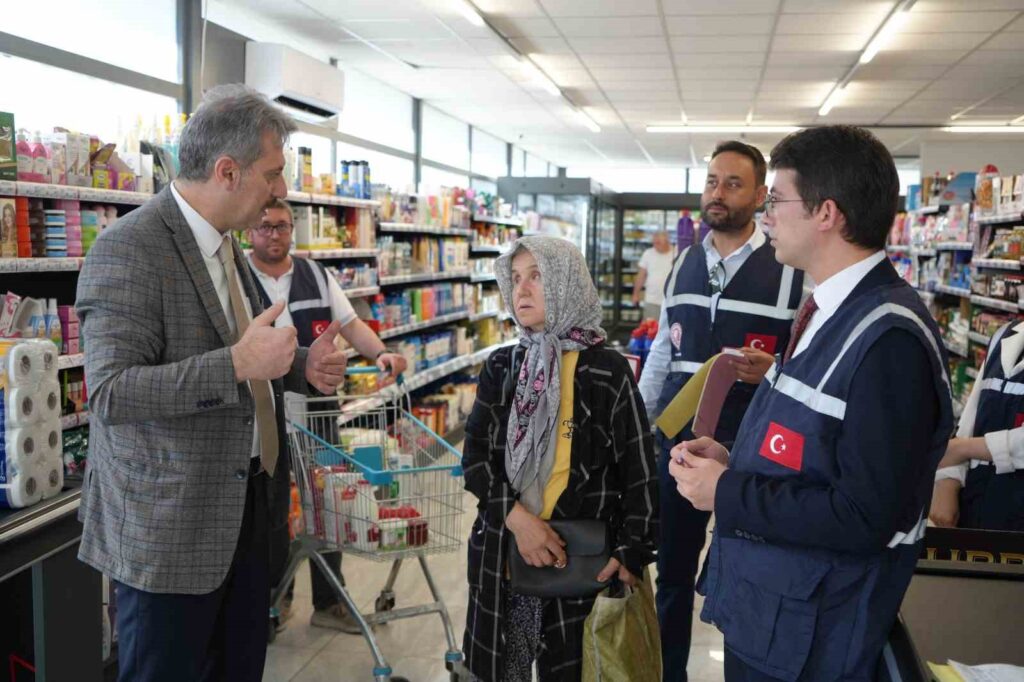TZOB President Bayraktar: “Sunflower harvest has started in the Mediterranean Region, our farmers are not getting the expected yield.”
Turkey Union of Agricultural Chambers (TZOB) Chairman Şemsi Bayraktar stated, “Sunflower harvesting has begun in the Mediterranean Region, and our farmers are not getting the expected yield.” Turkey Union of Agricultural Chambers (TZOB) Chairman Şemsi Bayraktar, sunflower …

Turkey Agricultural Chambers Union (TZOB) President Şemsi Bayraktar stated, “Sunflower harvesting has begun in the Mediterranean Region, our farmers are not getting the expected yield.”
Turkey Agricultural Chambers Union (TZOB) President Şemsi Bayraktar made a press statement regarding the problems and expectations of sunflower producers.
“Sunflower holds a very important place in our country’s economy. Its seeds contain 40-45% oil, and 80% of our liquid oil consumption is obtained from sunflowers. With its 30-40% protein content, the meal is also used as a valuable feed in animal husbandry,” Bayraktar continued his statement:
“In 2022, oilseed sunflower production reached 2 million 550 thousand tons. This production is a record for our country. Due to the low prices in response to the record production in 2022, the planting areas decreased in 2023. With the decrease in planting areas in 2023, production fell to 2 million 198 thousand tons. According to the first estimate results of the Turkish Statistical Institute, sunflower production is expected to increase by 8.7% this year to 2 million 390 thousand tons. Sunflower production is carried out in 59 provinces in our country. Edirne is at the forefront of sunflower-producing provinces, followed by Adana, Tekirdağ, Kırklareli, and Konya. The harvest of sunflowers, which were planted in April, started first in Çukurova in mid-July. As of August, it will also begin in the Marmara Region and other areas. This year, in the provinces where sunflower production is carried out intensively, our farmers did not receive the expected rainfall during the spring months. During the summer months, temperatures were above seasonal norms. June was the hottest June in the last 53 years. The increasing extreme temperatures this year have caused a decrease in yield in sunflowers, as in most crops. Therefore, our farmers are not getting the yield they expected from sunflowers.”
“Our self-sufficiency in sunflowers has been decreasing in recent years”
Stating that despite all efforts in Turkey, sunflower production cannot be increased sufficiently, Bayraktar said, “As the population increases, per capita consumption is also increasing over the years. In the 2022/2023 period, per capita consumption reached 56.5 kilograms, the highest level in the last 20 years. Despite the increasing production until 2022, our self-sufficiency rate, which was 79% in 2015, has decreased to 51%. Due to our sunflower production being insufficient to meet the national needs, this production gap is filled through imports. Our country is among the main importing countries of sunflowers. In 2023, we paid a total of 2 billion 67 million dollars for sunflower seeds, oil, and meal. In the last 5 years, the amount we paid for sunflower seeds, oil, and meal has increased by 117%. According to the data for the first 5 months of 2024, imports worth 892 million 766 thousand dollars have been made.”
“Our sunflower producers expect a price that will provide enough income in the market”
Bayraktar expressed that the price of sunflowers is as important for the welfare of producers as it is for the desired level of sunflower production. “With rising costs and decreasing yields, our farmers are expecting a price that will allow them to obtain sufficient income. Recently, Çukobirlik announced that it increased the purchase price of oilseed sunflowers for the 2024/2025 campaign period by 24.4%, setting it at 15 lira and 30 kuruş per gross kilogram. Our producers do not find this price sufficient against rising costs. Purchasing institutions such as Trakyabirlik, Karadenizbirlik, and Agricultural Credit Cooperatives should take into account the rising input costs, inflation rates, and the profit of our producers when determining sunflower purchase prices. There are farmers in our country willing to produce to increase sunflower production and reduce dependency on imports for a basic consumption item. As long as our farmers can obtain sufficient income from the sunflowers they produce. In 2022, our farmers produced and achieved record production for our country. Farmers who produce in excess should not be harmed against imported products sold at low prices. In the last two years, due to falling prices, planting areas for sunflowers have decreased. On the other hand, climate change and extreme heat also prevent further increases in sunflower production. By transferring the billions of liras paid for imports to our producers, we can increase our production and become self-sufficient.”
“While our sunflower producers cannot obtain sufficient income, our consumers are consuming sunflower oil at high prices”
Bayraktar pointed out that producer prices in sunflowers have remained at cost levels for two years, saying, “While our farmers struggle to cover high input costs, our consumers cannot consume oil at reasonable prices. Our producer market price studies show that there have been significant increases in oil prices in recent years. In January 2024, the price of sunflower oil per liter was 58 lira, while in June it increased by 15% to 67 lira per liter. In June 2024, there was a 47% increase in the last year. To control this price increase seen in sunflower oil, which is the most consumed oil by our people, and to reduce our dependency on foreign sources, we must increase our sunflower production. Without production, there is no consumption. Sunflower must definitely be among the products for which production planning will be done,” he stated.
Reminding that producers continue their production with high input prices, Bayraktar said, “As of June, when we examined input prices; diesel prices increased by 78.5% annually, fertilizer prices increased by 51%, and pesticide prices increased by 58%. Farmers producing under this cost burden must receive the reward for their labor. Sunflower must certainly be included in the production planning for some products that will begin in the upcoming production season. In provinces and districts where sunflower production will be allowed, price and marketing guarantees should be provided to our sunflower producers, and support amounts should be announced before planning. The premiums, fertilizer, and diesel support given for sunflowers are also of great importance to our producers. Supports need to be increased at least in proportion to input inflation. To protect and increase domestic production, customs tax rates on sunflowers and their products should be kept high throughout the year. Our greatest wish is for this season to be one where our producers receive the reward for their hard work,” he concluded.







